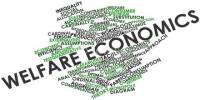Free Trade is an international trade left to its natural course without tariffs, quotas, or other restrictions. It is a trade policy that does not restrict imports or exports. It can also be understood as the free market idea applied to international trade. In government, free trade is predominantly advocated by political parties that hold liberal economic positions while economically left-wing and nationalist political parties generally support protectionism, the opposite of free trade. The concept of free trade is the opposite of trade protectionism or economic isolationism. Free trade makes a nation’s overall economy more productive, but it also can force millions to change careers. One strong advantage is that free trade reduces conflict by encouraging countries to rely on each other for food and services.
A free trade area (FTA) is where there are no import tariffs or quotas on products from one country entering another. Free trade is the unrestricted importing and exporting of goods and services between countries. Under a free trade policy, goods and services can be bought and sold across international borders with little or no government tariffs, quotas, subsidies, or prohibitions to inhibit their exchange. Most nations are today members of the World Trade Organization multilateral trade agreements. Free trade was best exemplified by the unilateral stance of Great Britain who reduced regulations and duties on imports and exports from the mid-nineteenth century to the 1920s. Barriers to trade create lots of opportunities for political corruption, according to some advocates of free trade.
Most governments still impose some protectionist policies that are intended to support local employment, such as applying tariffs to imports or subsidies to exports. Governments with free-trade policies or agreements in place do not necessarily abandon all control of imports and exports or eliminate all protectionist policies. Governments may also restrict free trade to limit exports of natural resources. Other barriers that may hinder trade include import quotas, taxes, and non-tariff barriers, such as regulatory legislation. A free-trade policy does not necessarily imply, however, that a country abandons all control and taxation of imports and exports.
Features
Free trade policies may promote the following features:
- Trade of goods without taxes or other trade barriers (e.g. quotas on imports or subsidies for producers).
- Trade-in services without taxes or other trade barriers.
- Unregulated access to markets.
- Unregulated access to market information.
- The inability of firms to distort markets through government-imposed monopoly or oligopoly power.
- Trade agreements which encourage free trade.
















